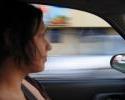A typical approach to young children with OCD symptoms is to watch and wait. However, recent research suggests children five to eight years old are helped by participating in family-based cognitive behavioral therapy (CBT).
Although CBT is an established effective treatment for older kids and adolescents with OCD, its efficacy for use with younger children had not been studied until recently.
“These findings have significant public health implications, as they support the idea that very young children with emerging OCD can benefit from behavior treatment,” said researcher Jennifer Freeman, PhD.
Exposure or Relaxation
The family-based CBT used in the research equipped the child and parents with a variety of OCD symptom management tools. The sessions included parenting strategies, psycho-education, and family-based exposure/response prevention (EX/RP).
EX/RP gradually exposes a child to the situations that frighten them so they can learn to tolerate anxiety and not respond with compulsive behaviors.
The study involved 127 children, ages five to eight, with OCD as a primary diagnosis. The children either received 14 weeks of family-based CBT, or 14 weeks of family-based relaxation therapy. The relaxation therapy provided education about feelings, and taught muscle relaxation methods to reduce the child’s anxiety.
Study results:
- After 14 weeks of family-based CBT with EX/RP, 72 percent of the children were reported to be “much improved” or “very much improved.”
- After 14 weeks of family-based relaxation therapy, 41 percent of the children showed improvement.
Early Treatment Benefits
The researchers hope their work encourages parents and professionals to provide developmentally tailored CBT for children when they first show symptoms of OCD. Starting treatment early may prevent or lessen the impact and chronic effects of OCD on the child’s overall development.
“We use this family-based CBT model for treating children in this age range in both our Pediatric Anxiety Research Clinic and our Intensive Outpatient Program with much success,” says Freeman. “The findings from this study support extending downward the age range that can benefit from CBT with EX/RP for pediatric OCD treatment.”
Source: Science Daily
Photo credit: docentjoyce (flickr)







